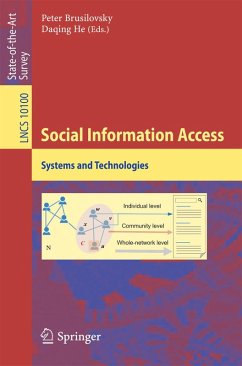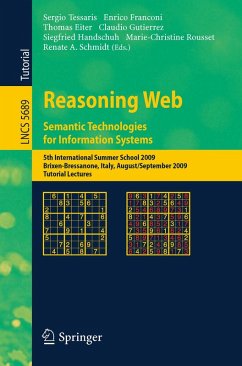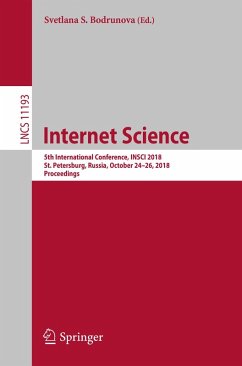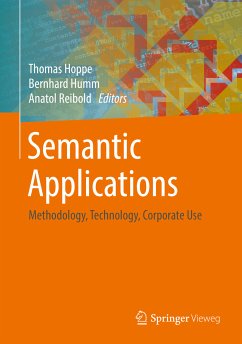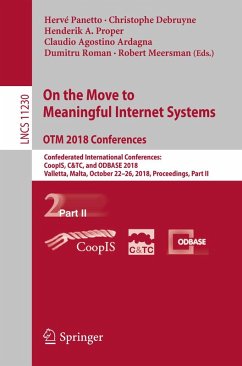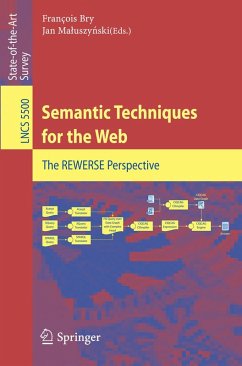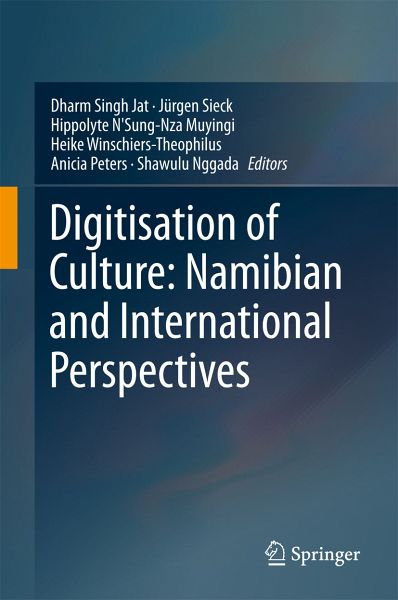
Digitisation of Culture: Namibian and International Perspectives (eBook, PDF)
Versandkostenfrei!
Sofort per Download lieferbar
72,95 €
inkl. MwSt.
Weitere Ausgaben:

PAYBACK Punkte
36 °P sammeln!
This book explores the digitization of culture as a means of experiencing and understanding cultural heritage in Namibia and from international perspectives. It provides various views and perspectives on the digitization of culture, the goal being to stimulate further research, and to rapidly disseminate related discoveries. Aspects covered here include: virtual and augmented reality, audio and video technology, art, multimedia and digital media integration, cross-media technologies, modeling, visualization and interaction as a means of experiencing and grasping cultural heritage.Over the past...
This book explores the digitization of culture as a means of experiencing and understanding cultural heritage in Namibia and from international perspectives. It provides various views and perspectives on the digitization of culture, the goal being to stimulate further research, and to rapidly disseminate related discoveries. Aspects covered here include: virtual and augmented reality, audio and video technology, art, multimedia and digital media integration, cross-media technologies, modeling, visualization and interaction as a means of experiencing and grasping cultural heritage.
Over the past few decades, digitization has profoundly changed our cultural experience, not only in terms of digital technology-based access, production and dissemination, but also in terms of participation and creation, and learning and partaking in a knowledge society. Computing researchers have developed a wealth of new digital systems for preserving, sharing and interacting with cultural resources.
The book provides important information and tools for policy makers, knowledge experts, cultural and creative industries, communication scientists, professionals, educators, librarians and artists, as well as computing scientists and engineers conducting research on cultural topics.
Over the past few decades, digitization has profoundly changed our cultural experience, not only in terms of digital technology-based access, production and dissemination, but also in terms of participation and creation, and learning and partaking in a knowledge society. Computing researchers have developed a wealth of new digital systems for preserving, sharing and interacting with cultural resources.
The book provides important information and tools for policy makers, knowledge experts, cultural and creative industries, communication scientists, professionals, educators, librarians and artists, as well as computing scientists and engineers conducting research on cultural topics.
Dieser Download kann aus rechtlichen Gründen nur mit Rechnungsadresse in A, B, BG, CY, CZ, D, DK, EW, E, FIN, F, GR, HR, H, IRL, I, LT, L, LR, M, NL, PL, P, R, S, SLO, SK ausgeliefert werden.



